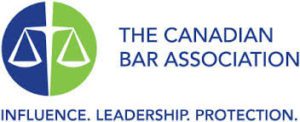
To speak to a Lawyer
Call: 613-703-5599
Impaired Driving Links

Dave Singh
3 days ago
★★★★★ Nick and his lawyers worked on my impaired driving case. I was worried about getting a criminal record, but they took care of everything.They got my charge dropped to a traffic ticket, not a criminal offence. I’m so happy with the result. Before the trial date, I met with his team to watch surveillance videos of me, solidify my defence, give me some information about the law, and do a dry run of the trial with my friend who was going to testify with me. I felt as comfortable as I could given the situation since he prepared me well. My lawyer seemed to be known and had a good report with the court which I believe was to my advantage. He also prepared two back up technical defences. We won the case.
Susan Miller
7 days ago
★★★★★ My husband was charged with impaired driving and over 80. We felt totally hopeless. It was difficult, but these guys were with us every step of the way, supporting us, explaining next steps, always answering our questions. They always were easy to get in touch with and answer questions. As a result of their work, the impaired driving and over 80 charges were withdrawn. My husband ended up with careless driving ticket, no criminal record. We are very grateful to this amazing team of knowledgeable and skilled criminal lawyers. We would recommend them to anyone who is in trouble and does not know what to do.
Mohammad Nazim
1 week ago
★★★★★ Highly recommend the firm and truly appreciate their hard work, this firm are the best at what they do, they have withdrawn my both charges of Drive over 80 and Impaired Driving. They are a bit pricey but however that’s what it needs for professionals to resolve your matters and they had the courtesy to have me pay it over a period of time so definitely worth it regardless. I recommend them to anyone with any kind of criminal cases specially what I went through as results was awesome. highly recommend 100% no doubt. I’m super happy with their work and results.
Marisol Almarazo
2 weeks ago
★★★★★ I recommend them because they won my case! My criminal charges WITHDRAWN and my record will be erased immediately. I recommend them 100% for any legal problem that you need. The results that they provided were very impressive. Thank you
John Stocco
2 weeks ago
★★★★★ I was charged with Care and Control of a Motor Vehicle over 80mg. From the moment I contacted Mr. Charitsis, I was put as ease. The trial was simply outstanding to watch my lawyer cross examining the officer who charged me. In the end, I was acquitted thanks to the expertise of these lawyers. If you have been charged with a criminal offence then I would highly recommend!
Past results are not necessarily indicative of future results and litigation outcomes will vary according to the facts in individual cases.
Criminal Records in Canada: What You Need to Know
A criminal record can have a serious impact on a person's life, limiting employment, travel, immigration and even ability to volunteer.
Understanding Criminal Records in Canada
A criminal record can:
- prevent you from obtaining employment,
- obtaining certain licenses,
- traveling to other countries, and
- even having custody of your children.
What is a Criminal Record
A criminal record is a record of a person’s criminal history, including any criminal convictions and charges.
In Canada, criminal records are maintained by the Royal Canadian Mounted Police (RCMP). Criminal records are accessible by various government agencies and organizations, such as the police, courts, and immigration authorities through the Canadian Police Information Centre (CPIC)
Where a person has been given a criminal record the record stays with that person for life, unless they apply for an recieve a criminal record suspension.
How a Record Affects You
It’s important to know that having a criminal record can impact various areas of your life, including your ability to travel, work, and even adopt a child. Here are some of the areas where having a criminal record can cause issues:
- Travel: Border officials can question you about your criminal record and deny you access to their country. If you’ve been convicted of impaired driving and are trying to drive into the USA, customs officers can deny you access to drive across the border.
- Employment:Employers may require a criminal record check and refuse to hire someone with a criminal conviction. Government agencies may deny employment or require a criminal record suspension (pardon) before considering someone for work. As some employers may require the employee to be bonded, this may affect employment.
- Family Law: A judge can take into consideration a criminal record as evidence of a bad character, which may impact child custody or visitation rights.
- Education: Having a criminal record may disqualify a student from attending or graduating from certain educational institutions, such as those involving medicine, security, child care, or businesses involving money (e.g. banking or accounting).
- Canadian Citizenship and Residency: Any person applying for Canadian citizenship will be denied citizenship if they have a criminal record. Persons who do not have permanent residency in Canada may be deported if they commit criminal acts in Canada. Non-Canadian citizens can be deported due to criminal acts.
- Volunteering: Many volunteer agencies now require a criminal record check, and having a criminal record can result in disapproval of a volunteer application.
- Adoption: Persons considering the adoption process must pass a Vulnerable sector search, which may result in denial due to a criminal record.
Criminal records can have far-reaching consequences, and if you don’t have one, you want to avoid them.
If you’re facing criminal charges, it’s important to speak with a criminal lawyer who can explain what’s involved to protect your rights and minimize the impact on your life.
Criminal Records & Previous Convictions
If you already have a record and commit another criminal offense, you can expect to be sentenced more severely than someone with no criminal history.
Impaired driving laws for example have increased penalties for repeat offenders. Here are the penalties for second, third and fourth impaired or DUI offences:
Second Offence:
- 14-day minimum jail sentence
- Three-year minimum requirement to drive a car equipped with an ignition interlock device
- 30-day minimum jail sentence
- Fine amount at the discretion of the judge
- Licence suspended for three years
Third Offence:
- Lifetime minimum requirement to drive a car equipped with an ignition interlock device
- 120-day minimum jail sentence
- Fine amount at the discretion of the judge
- Lifetime licence suspension (can be reduced to 10 years if certain conditions are met)
Fourth Offence:
- Minimum of four years in prison
- Lifetime licence suspension
- Lifetime requirement to drive a car equipped with an ignition interlock device
As you can see, repeat offence can lead to serious consequences.
If you’re facing criminal offence at the Ottawa courts, it’s important to seek the help of our criminal defence lawyers, who can work to protect your rights and minimize the impact on your life.
Criminal Records & Record Suspensions
Criminal records can follow you for your entire life. They do not automatically disappear, even after several years, and not for minor offences.
However, in some cases, you may be eligible to apply for a record suspension, also known as a pardon. A record suspension means the RCMP will keep your criminal record separate from other criminal records so that the information is not accessible.
If you were under 18 years old when you committed an offence, your criminal record may not be disclosed after a certain time period, unless you committed a serious offence and were sentenced as an adult.
It’s important to understand that having your criminal record suspended does not erase the fact that you were found guilty of a criminal offence or convicted. You still must answer “yes” if someone asks if you have ever been found guilty of a criminal offence or convicted, or any other similar question. You should also explain that you received a record suspension.
If you’re interested in obtaining a record suspension, call and speak with one of our Ottawa criminal lawyers who can walk you through the process and show you how we can help you.
A record suspension can provide significant benefits, such as improved employment opportunities and personal and professional relationships.
If I received a discharge, do I have a criminal record?
Usually, no, as a criminal record in these cases is only temporary.
Discharges can be given for certain less serious offenses or a first offense, when it is in the best interests of the guilty person, and the discharge doesn’t harm society.
When you are given a discharge, you are considered not to have been “convicted.”
In the case of an absolute discharge, the RCMP removes the criminal record from its files automatically after one year. For conditional discharges, the RCMP removes the criminal record from its files automatically three years after the probation order. (A conditional discharge could include a condition that the discharged person not disturb the peace).
After the time limits are up, a criminal record can only be disclosed in rare cases. Even if the RCMP has removed your record from its files, it is generally recommended that you file an “Application for no-disclosure of information contained in computerized records in criminal matters” to ensure that all traces of the record have been totally erased. Here are some important things to keep in mind:
- A criminal record in these cases is temporary, but you need to follow up to ensure all traces of the record have been erased.
- You are considered not to have been “convicted” if you are given a discharge.
- In the case of an absolute discharge, the RCMP removes the criminal record from its files automatically after one year.
- For conditional discharges, the RCMP removes the criminal record from its files automatically three years after the probation order.
After the time limits are up, a criminal record can only be disclosed in rare cases.
It is recommended that you file an “Application for no-disclosure of information contained in computerized records in criminal matters” to ensure that all traces of the record have been totally erased.
Can employers Deny Employment due to a Criminal record?
If your criminal record has been suspended, or if the offence is unrelated to the job, nobody can dismiss you, refuse to employ you, or disadvantage you because of your criminal record.
However, once an employer sees a criminal record they can fire or refuse to hire you if you do not have the necessary qualifications, skills for the job or some other reason they find out…
In such instances, it may be difficult to demonstrate that your criminal record was the sole reason for your dismissal or rejection.
Moreover, a criminal record can adversely affect your chances of employment in certain fields, such as law enforcement or jobs involving financial responsibility. If you were found guilty of a criminal offence, you cannot work for the police.
Furthermore, you may be ineligible for a license to practice certain professions governed by a Professional Code may prohibit your employment if you were convicted of a criminal offence and did not obtain a record suspension.
These professions include nurses, acupuncturists, geologists, lawyers, doctors, dentists, pharmacists, engineers, and architects.
Criminal Records and Entering the USA
Entering the United States with a criminal record is challenging due to the strict immigration laws.
American immigration officials have the power to make a decision on these issues. It is not possible to enter the United States if:
- You have been convicted of an offence related to moral turpitude, drugs, terrorism, prostitution, national security, etc. (To know more about offences of moral turpitude, see the next question.)
- You have been found guilty of multiple offences, and the total of your sentences is five years or more of detention, regardless of whether or not they were moral turpitude offences.
These regulations apply even if you have received a discharge in Canada. A Canadian discharge does not automatically grant you permission to enter the United States.
Get Legal Advice Now
613-703-5599



